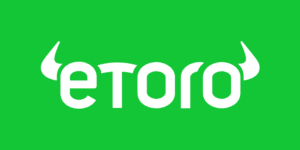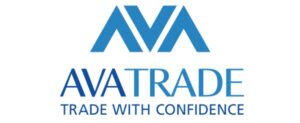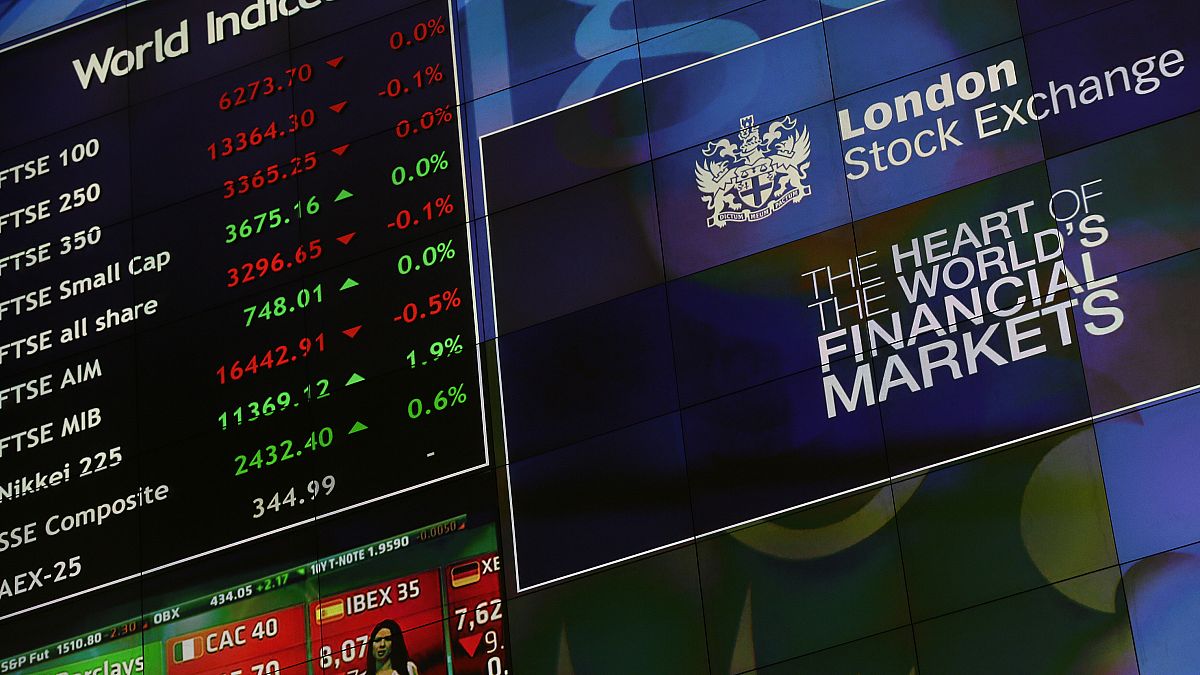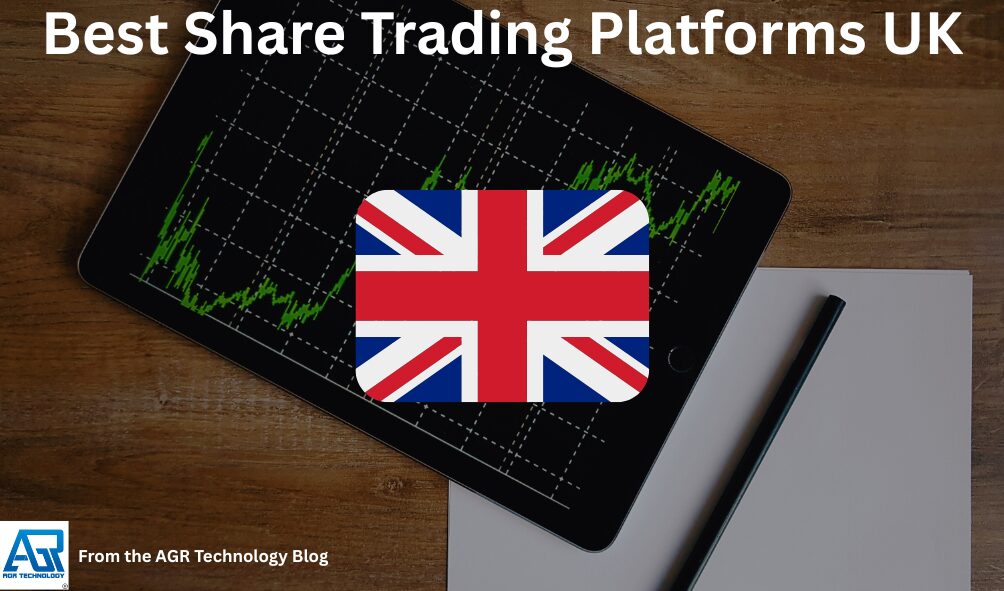Disclaimer: General information only. All kinds of investment (particularly trading CFDs, commodities, and FX) involve significant risk, including the possibility of losing more than the amount invested, as well as market volatility and liquidity hazards. Past performance does not guarantee future results. Most investors will find such operations unsuitable.
The UK’s investment landscape has transformed dramatically with millions of DIY investors now accessing global stock markets through online trading platforms. These digital brokers have revolutionized how people buy and sell shares, ETFs, investment trusts and funds – eliminating the need for traditional stockbrokers or financial advisers. With at least 10 major investment platforms operating in the UK today, choosing the right one can significantly impact an investor’s success and costs.
Finding the ideal trading platform isn’t just about low fees anymore. Today’s investors need platforms that balance competitive pricing with robust features, extensive investment options and reliable customer service. Whether someone’s starting with small amounts or managing substantial portfolios, the platform they choose will determine their trading costs, available markets and overall investing experience.
The best UK stock trading platforms differentiate themselves through commission structures, platform fees, market access and user experience. Some excel at serving beginners while others cater to high-volume traders seeking advanced tools and global market access.
🇬🇧 Top Share Trading Platforms & Online Brokers For UK users in February 2026
1) Etoro

eToro is a globally recognized social trading platform that caters to both novice and experienced investors. Launched in 2007, eToro allows users to trade a wide range of assets, including stocks, ETFs, cryptocurrencies, and commodities, through its intuitive, multi-asset platform. Known for its beginner-friendly features, such as CopyTrading, eToro provides a seamless trading experience that appeals to those looking to invest with minimal effort. With a robust mobile app, easy account setup, and a unique social trading community, eToro enables users to mirror top-performing traders and build diversified portfolios with ease.
Supported Assets & Features:
- Over 6,000 assets including stocks, ETFs, and cryptocurrencies
- CopyTrader for social trading and mimicking strategies of top investors
- Virtual trading account with $100,000 in virtual funds for risk-free practice
- Instant deposit options via the eToro Money account
- Real-time insights on market trends and crypto news
eToro’s appeal lies in its accessibility for beginners, its user-friendly interface, and the ability to diversify investments all in one place. However, while it offers an excellent starting point for new traders, its fees on certain assets and lack of advanced tools may not suit professional traders looking for comprehensive market research or tighter spreads on specific asset classes.
Pros:
- Beginner-Friendly: eToro’s easy-to-navigate platform and educational tools make it ideal for new traders. The CopyTrading feature allows users to follow seasoned investors, reducing the learning curve.
- Zero Commission on Stocks and ETFs: Trading UK stocks is commission-free, providing an attractive option for those focused on equities.
- Diverse Asset Selection: Access to a broad range of assets, including stocks, crypto, forex, and commodities, making it a one-stop shop for various investment strategies.
- Social Trading Features: The ability to interact with and learn from over 30 million traders globally offers a unique experience, helping users share strategies and insights.
- Mobile App: eToro’s mobile app offers a smooth, seamless trading experience, replicating most features of the desktop version for trading on-the-go.
Cons:
- Higher Fees on Crypto and Forex: While stocks are commission-free, crypto trades carry a 1% fee, and forex spreads can be wide, which may impact frequent traders.
- Withdrawal Fees: A flat fee of $5 per withdrawal (approx. £3.90 GBP) can add up for users frequently moving funds out of their accounts.
- Limited Advanced Tools: While the platform is excellent for beginners, more experienced traders may find eToro’s research tools and charting options basic compared to professional platforms like IG or Saxo.
- Inactivity Fee: After 12 months of no login activity, eToro charges an inactivity fee of $10 per month, which could be a drawback for less frequent traders.
- Currency Conversion Fees: If deposits or withdrawals are made in a currency other than USD, eToro applies a 1.5% to 3% conversion fee, which could impact international users.
Final Verdict
eToro is a versatile platform tailored to both beginning investors and those who prefer a more hands-off approach to trading through social features. Its user-friendly interface, zero-commission stocks, and social trading tools make it a standout choice for casual traders looking to explore a wide range of assets without complex setups. However, its higher crypto and forex fees, limited advanced tools, and withdrawal charges may make it less suitable for more active or professional traders seeking cost-efficient solutions and in-depth market analysis. If you’re just starting out or prefer a straightforward trading platform with a focus on community and ease of use, eToro is a solid option.
PDS Link: https://www.etoro.com/wp-content/uploads/2024/08/20240811_PDS-2.pdf
2) Avatrade

AvaTrade is a prominent global online broker, offering a wide range of trading opportunities across forex, CFDs, and commodities. Established in 2006 and regulated in multiple jurisdictions including the Central Bank of Ireland (CBI) and ASIC, AvaTrade is a reliable choice for traders seeking robust security and a solid regulatory framework. The platform provides access to over 1,200 markets, with competitive fixed spreads, diverse trading platforms, and advanced tools like AvaProtect, which helps traders manage risk by offering protection on trades for a small fee. AvaTrade supports both beginner and experienced traders, offering educational resources, a user-friendly onboarding process, and several top-tier platforms like MetaTrader 4 (MT4), MetaTrader 5 (MT5), and its proprietary mobile app, AvaTradeGO.
Pros:
- Strong Regulatory Framework: AvaTrade operates under strict regulations in multiple global jurisdictions, ensuring high levels of security for client funds and transparent trading practices.
- Competitive Spreads: The platform offers tight fixed spreads, especially for forex pairs such as EUR/USD (starting at 0.9 pips), helping traders manage costs more predictably.
- Wide Range of Platforms: AvaTrade supports MT4, MT5, AvaTradeGO, and WebTrader, catering to traders of all experience levels with both desktop and mobile solutions.
- Risk Management Tools: Features like AvaProtect allow users to mitigate potential losses, providing an added layer of security when navigating volatile markets.
- Comprehensive Educational Resources: AvaTrade provides traders with a wealth of educational materials, including video tutorials, webinars, and daily market analysis, helping users refine their strategies and improve their trading knowledge.
- Negative Balance Protection: This feature ensures traders cannot lose more than their deposited funds, enhancing security when using leverage.
Cons:
- Limited Stock Trading: While AvaTrade offers CFDs on popular stocks, the selection is narrower compared to some competitors, and there are no fractional share options available.
- No FCA Regulation: Although AvaTrade is regulated by several reputable authorities, it is not governed by the FCA, which may be a concern for traders who prioritize this specific regulation.
- Crypto Restrictions: Due to FCA regulations, cryptocurrency trading is only available to professional clients, limiting access for some users in the UK.
Conclusion
AvaTrade stands out for its competitive spreads, robust regulatory oversight, and user-friendly platforms. It’s an excellent choice for forex and CFD traders who prioritize stability, risk management, and a wide range of tools. While the platform may not be the best fit for those seeking extensive stock trading or FCA regulation, its offerings are well-rounded for traders focused on forex, commodities, and indices.
3) Plus500

Plus500 is a well-established online trading platform that specializes in Contracts for Difference (CFDs), offering access to a wide range of financial instruments including forex, stocks, commodities, cryptocurrencies, and more. Founded in 2008 and regulated by top-tier authorities such as the UK’s Financial Conduct Authority (FCA), Plus500 provides a user-friendly proprietary platform known as WebTrader, designed to facilitate both novice and experienced traders. Although it does not accept U.S. clients for CFD trading, it does offer futures trading to U.S. residents. The platform’s straightforward interface and competitive spreads make it a strong option for manual traders, but it may fall short for those seeking advanced analysis tools or automated trading features.
Pros:
- Wide Range of CFDs: Plus500 provides access to over 2,800 CFDs across various asset classes, including forex, stocks, commodities, ETFs, and cryptocurrencies (availability depends on regulation). This extensive selection allows traders to diversify their portfolios.
- Regulated and Secure: Plus500 operates under strict regulatory frameworks in multiple jurisdictions, including the FCA, ASIC, and CySEC. Client funds are held in segregated accounts for added security, and the platform offers negative balance protection, ensuring that traders cannot lose more than their initial deposit.
- Simple and Intuitive Platform: The WebTrader platform is easy to navigate, with customizable charting tools, technical indicators, and real-time trading alerts. It’s accessible via desktop and mobile devices, making it convenient for traders on the go.
- Competitive Spreads: Plus500 generates revenue primarily through spreads, offering competitive pricing without commissions. This helps keep trading costs relatively low, particularly for retail traders.
- Risk Management Tools: The platform features guaranteed stop-loss orders (GSLOs), allowing traders to limit potential losses. While these come with a slightly higher spread, they offer peace of mind in volatile markets.
Cons:
- Limited Research Resources: Unlike other brokers, Plus500 doesn’t offer in-depth market analysis or comprehensive educational materials beyond a basic academy. Traders looking for robust research tools or advanced trading signals may find the platform lacking.
- No Support for Automated Trading: Plus500 does not support popular third-party platforms like MetaTrader 4 (MT4) or allow for automated trading. This limits the options for traders who prefer algorithmic strategies or expert advisors.
- Customer Service Limitations: Plus500 provides customer support through WhatsApp, live chat, and email, but lacks phone support. While the response time is generally quick, the absence of a phone line may be a drawback for traders who prefer immediate assistance.
- Restricted to Manual Trading: The platform is primarily designed for manual traders and does not support back-testing, automated trading, or integration with third-party trading tools, which may be a deal-breaker for more advanced users.
Understanding Share Trading Platforms in the UK

Share trading platforms serve as digital gateways connecting UK investors to global financial markets through sophisticated technology infrastructure. These platforms have revolutionized how individuals access investment opportunities by eliminating traditional barriers and democratizing market participation.
What Makes a Trading Platform Stand Out
Regulatory compliance forms the foundation of any reputable UK trading platform. FCA-authorized platforms must maintain segregated client accounts and participate in the Financial Services Compensation Scheme (FSCS) protecting deposits up to £85,000. They’re required to demonstrate operational resilience and maintain adequate capital reserves.
Technology infrastructure determines platform reliability during critical trading moments. Leading platforms process thousands of transactions per second without delays while maintaining 99.9% uptime. They offer real-time market data feeds from multiple exchanges and execute trades within milliseconds during volatile market conditions.
Asset diversity separates comprehensive platforms from basic offerings. Top-tier platforms provide access to over 40,000 instruments including UK equities, international stocks across 150+ markets, ETFs, Forex, bonds, commodities and cryptocurrencies. They enable portfolio diversification through single-account management rather than requiring multiple broker relationships.
Educational resources demonstrate long-term commitment to client success. Premium platforms invest heavily in learning materials including video tutorials, market analysis tools and demo accounts with virtual funds. They provide research reports from independent analysts and offer webinars covering everything from basic investing principles to advanced trading strategies.
Key Features to Consider Before Choosing
Fee structures significantly impact investment returns over time. UK platforms typically charge through three mechanisms: trading commissions (£3-£12 per trade), platform fees (0.25%-0.45% annually) and currency conversion costs (0.15%-3%). High-volume traders benefit from tiered pricing while long-term investors prioritize low platform fees.
| Fee Type | Budget Platform | Premium Platform | Impact on £10,000 Portfolio |
|---|---|---|---|
| Trading Commission | £0-£3 | £5-£12 | £0-£144 annually |
| Platform Fee | 0% | 0.25%-0.45% | £25-£45 annually |
| FX Conversion | 0.15% | 0.5%-1.5% | £15-£150 per trade |
| Inactivity Fee | None | £10-£25/month | £0-£300 annually |
Account types determine tax efficiency for UK investors. ISAs shield capital gains and dividends from HMRC while allowing £20,000 annual contributions. SIPPs provide pension tax relief up to 45% for higher-rate taxpayers. General investment accounts offer unlimited contributions but trigger capital gains tax above £3,000 annual allowance.
Trading tools enhance decision-making capabilities through technical analysis. Professional platforms include advanced charting with 100+ indicators, level 2 market data showing order book depth and algorithmic trading options. They offer stock screeners filtering thousands of securities by fundamental metrics like P/E ratios, dividend yields and market capitalization.
Mobile functionality enables portfolio management anywhere. Native apps should mirror desktop capabilities including complex order types (stop-loss, trailing stops, limit orders) and real-time notifications. They must maintain security through biometric authentication and encrypted connections while consuming minimal battery life.
Customer support quality affects problem resolution speed. UK-based support teams operating during market hours resolve issues faster than offshore call centers. Live chat response times under 2 minutes and dedicated relationship managers for accounts over £100,000 indicate superior service levels.
Best Trading Platforms for Different Investor Types

Selecting the right trading platform depends significantly on an investor’s experience level and trading goals. Different platforms excel in serving specific investor types with tailored features and pricing structures.
Best for Beginners and First-Time Investors
Beginning investors need platforms that combine ease of use with educational support and low barriers to entry. eToro leads this category with its innovative social trading features that let newcomers copy experienced traders’ strategies automatically. The platform offers commission-free trading on many assets and maintains an intuitive interface that simplifies the learning curve.
Freetrade delivers exceptional value through its commission-free trading on UK, European, and US shares plus ETFs. Its mobile-first approach and straightforward pricing plans make it particularly accessible for those starting with smaller investment amounts. The platform’s clean design removes unnecessary complexity that often intimidates first-time investors.
Trading 212 stands out by offering commission-free real stock and ETF trades alongside practical features like auto-investing and ISA options. These tax-efficient accounts help beginners maximize their returns while learning the fundamentals of investing. The platform’s educational resources guide users through their initial trades with confidence.
Webull UK provides free stock and ETF trading with remarkably fast account opening processes. Its user-friendly mobile app targets novice investors who prefer managing investments on their smartphones. The platform includes paper trading features that let beginners practice without risking real money.
Best for Active Day Traders
Active traders require sophisticated tools and lightning-fast execution speeds to capitalize on market movements. Interactive Brokers dominates this space with access to global markets and some of the industry’s lowest fees. The platform provides advanced charting tools, algorithmic trading capabilities, and professional-grade research that serious traders demand.
Saxo Markets caters to experienced traders with its broad product portfolio spanning stocks, bonds, forex, and commodities. The platform’s professional research tools and multiple trading platforms accommodate various trading styles and strategies. Its advanced order types help traders manage risk effectively in volatile markets.
XTB attracts active traders through commission-free ETF trading and competitive CFD pricing across multiple asset classes. The platform’s proprietary xStation 5 offers advanced technical analysis tools while maintaining an intuitive interface. Traders benefit from negative balance protection and segregated client accounts for added security.
Plus500 specializes in CFD trading with a streamlined platform designed for speculative and short-term trading strategies. The platform offers tight spreads and guaranteed stop losses on major instruments. Its mobile app ensures traders can react to market movements instantly from anywhere.
Best for Long-Term Investors
Long-term investors prioritize low costs and tax efficiency over advanced trading features. InvestEngine emerges as the UK’s cheapest ETF broker, making it ideal for buy-and-hold investors focused on minimizing expenses. The platform charges no trading fees on ETF transactions and offers managed portfolios for hands-off investing.
Interactive Investor targets investors with high-value portfolios through its flat-fee structure that becomes increasingly cost-effective as portfolio values grow. The platform provides access to a wide range of investment products including funds, shares, investment trusts, and both ISAs and SIPPs. Its regular investing feature helps investors build wealth systematically through pound-cost averaging.
Charles Schwab brings its renowned US investment expertise to UK investors with commission-free stock and ETF trading. The platform’s extensive research resources and excellent customer service support informed long-term investment decisions. Its retirement planning tools help investors align their portfolios with long-term financial goals.
Freetrade Plus Plan enhances the basic offering with ISA and SIPP accounts that provide crucial tax advantages for long-term wealth building. The plan includes access to additional stocks and priority customer support while maintaining the platform’s signature simplicity. Monthly investing options starting from £25 help investors build positions gradually without timing the market.
| Investor Type | Recommended Platforms | Key Features |
|---|---|---|
| Beginners | eToro, Freetrade, Webull UK, Trading 212 | Commission-free trades, social trading, mobile apps, educational resources |
| Active Day Traders | Interactive Brokers, Saxo Markets, XTB, Plus500 | Advanced tools, global markets, professional features, fast execution |
| Long-Term Investors | InvestEngine, Interactive Investor, Charles Schwab, Freetrade Plus | Low fees, tax-efficient accounts, research tools, regular investing |
These platforms operate under Financial Conduct Authority regulation, ensuring investor protection and fair trading practices. The choice between them depends on individual investment objectives, risk tolerance, and preferred trading frequency.
Top-Rated Platforms by Trading Features
The UK’s share trading landscape offers diverse platforms tailored to specific investor needs and trading styles. Understanding which platforms excel in particular features helps investors make informed decisions that align with their investment strategies and financial goals.
Best for Low Fees and Commission Structure
Commission-free trading has revolutionized how UK investors access financial markets. eToro leads the charge with zero-commission investing on stocks and ETFs while maintaining low spreads and transparent pricing. The platform’s social trading features add value without additional costs making it particularly attractive for cost-conscious beginners.
Trading 212 matches this offering with completely commission-free trading on real stocks and ETFs. Investors benefit from:
- Zero platform fees for standard accounts
- No dealing charges on UK and international shares
- Free ISA accounts with tax-efficient investing
- Auto-invest features at no extra cost
InvestEngine specializes in ETF investing with the lowest costs in the UK market. The platform charges no fund dealing fees meaning investors only pay the ETF’s ongoing charges. This structure makes it ideal for passive investors building diversified portfolios.
XTB provides zero commission on stocks and ETFs up to €100,000 monthly turnover. Active traders appreciate the platform’s competitive spreads on CFDs and forex pairs while maintaining transparent pricing across all asset classes.
| Platform | Stock Trading Fee | ETF Fee | Platform Fee |
|---|---|---|---|
| eToro | £0 | £0 | None |
| Trading 212 | £0 | £0 | None |
| InvestEngine | N/A | £0 | None |
| XTB | £0* | £0* | None |
*Up to €100,000 monthly turnover
Best for Advanced Charting and Technical Analysis
Professional traders require sophisticated tools for market analysis and strategy development. Interactive Brokers delivers institutional-grade platforms with unmatched analytical capabilities. Traders access:
- Over 120 technical indicators and drawing tools
- Real-time market data from 150+ exchanges
- Advanced order types including algorithmic trading
- Multi-asset charting with customizable layouts
Saxo Markets caters specifically to professional investors with its SaxoTraderGO and SaxoTraderPRO platforms. The broker provides comprehensive research tools including:
- Professional-grade charting packages
- Integrated fundamental analysis
- Market sentiment indicators
- Automated trading strategies
Charles Schwab stands out for its outstanding research capabilities despite being US-based. The platform offers:
- StreetSmart Edge® with advanced charting
- Screeners for stocks ETFs and mutual funds
- Third-party research from Morningstar and CFRA
- Options analytics and probability calculators
These platforms support serious traders who rely on technical analysis for decision-making. Each provides backtesting capabilities allowing traders to validate strategies before risking capital.
Best for International Market Access
Global diversification requires platforms offering extensive international coverage. Interactive Brokers provides unparalleled access to worldwide markets making it the top choice for international trading. Investors trade across:
- 150+ markets in 33 countries
- Stocks bonds ETFs futures forex and options
- 23 currencies with competitive exchange rates
- Direct market access with smart routing
Freetrade balances accessibility with international reach offering:
- 6,000 UK European and US shares
- 600+ ETFs from major global providers
- Fractional shares for expensive stocks
- Three subscription tiers with varying international access
eToro focuses on making international investing accessible through:
- 3,000+ stocks from 17 exchanges
- Popular US tech stocks with fractional shares
- Copy trading for following successful international traders
- Multi-asset portfolios including commodities and cryptocurrencies
Webull UK specializes in US market exposure providing:
- Extended trading hours for US stocks
- Real-time quotes and advanced market data
- Access to ADRs for international companies
- Commission-free trading on thousands of securities
International market access varies significantly by platform with fees structure and available instruments differing based on the provider’s focus. Investors should consider currency conversion costs which typically range from 0.15% to 2% depending on the platform and transaction size.
The choice between these platforms depends on specific international market interests trading frequency and the importance of research tools versus cost savings. Active international traders benefit most from Interactive Brokers’ comprehensive coverage while casual investors might prefer Freetrade’s simplicity or eToro’s social features.
Essential Platform Capabilities and Tools

The best share trading platforms in the United Kingdom distinguish themselves through comprehensive toolsets that empower investors to make informed decisions. These capabilities range from robust research resources to sophisticated automated trading systems that cater to various investment strategies and experience levels.
Research and Educational Resources
Quality educational content separates exceptional trading platforms from basic ones. IG’s comprehensive IG Academy provides structured learning paths covering trading strategies and market analysis fundamentals. The platform delivers real-time analytics alongside educational materials that help traders understand market movements while they’re happening.
XTB excels in educational support for newer investors with solid materials that break down complex trading concepts into digestible lessons. Their resources cover everything from basic stock selection to advanced technical analysis techniques. The platform integrates learning directly into the trading experience through contextual help features and guided tutorials.
Hargreaves Lansdown stands out for research quality despite having average charting capabilities and higher fees. Their research reports provide deep fundamental analysis of UK companies including earnings forecasts and sector comparisons. Professional analysts produce these reports giving retail investors access to institutional-grade insights.
| Platform | Educational Features | Research Tools | Best For |
|---|---|---|---|
| IG | IG Academy with structured courses | Real-time analytics and market data | Experienced traders seeking depth |
| XTB | Beginner-friendly tutorials | Market analysis and trading signals | New investors learning basics |
| Hargreaves Lansdown | Limited educational content | Premium research reports | Fundamental analysis enthusiasts |
Mobile Trading Applications
Mobile functionality has become essential for modern share trading with leading platforms offering feature-rich apps that rival desktop experiences. Freetrade’s mobile-first approach delivers commission-free trading through an intuitive app interface designed for smartphones. Users can access around 6,000 UK European and US shares plus ETFs with real-time pricing and interactive charts.
eToro’s mobile platform provides social trading features alongside traditional functionality allowing users to follow and copy successful traders directly from their phones. The app includes portfolio overview tools one-tap order execution and price alerts that keep investors connected to markets throughout the day.
AvaTrade offers dedicated apps on both iOS and Android platforms featuring advanced charting tools and technical indicators. Their mobile solution includes:
- One-tap order execution for quick trades
- Portfolio overview with real-time P&L tracking
- Customizable watchlists and price alerts
- Secure biometric authentication
- Offline mode for reviewing positions without connectivity
Automated Trading Options
Automated trading capabilities transform how investors execute strategies removing emotion from decision-making while enabling 24/7 market participation. AvaTrade supports multiple automation platforms including MetaTrader 4 and MetaTrader 5 which allow traders to develop custom algorithms or use pre-built expert advisors. Their AvaOptions platform adds sophisticated options trading automation while social copy trading tools let beginners mirror experienced traders automatically.
IG provides advanced automated features through their platform’s strategy builders and risk calculators designed for sophisticated users. These tools enable:
- Automated entry and exit based on technical indicators
- Risk management through automatic stop-loss placement
- Backtesting strategies using historical data
- Alert-triggered trades that execute when conditions are met
The platform’s ProRealTime integration offers algorithmic trading capabilities with coding support for custom strategies. Professional traders can create complex multi-condition orders that execute across different timeframes and markets simultaneously ensuring they never miss opportunities even when away from their screens.
Security and Regulatory Considerations
UK share trading platforms operate under stringent regulatory frameworks that protect investors’ funds and ensure fair market practices. Understanding these security measures helps investors choose platforms that safeguard their investments while maintaining operational reliability.
UK Regulatory Compliance
FCA regulation forms the cornerstone of investor protection in the UK share trading market. The Financial Conduct Authority mandates that all UK trading platforms maintain authorization and follow strict rules for transparency and fair treatment of clients. Platforms must display their FCA registration number (FRN) prominently and undergo regular compliance audits to maintain their operating licenses.
Client asset segregation rules require platforms to keep customer funds completely separate from company operating funds. This segregation protects investor assets even if the platform faces financial difficulties or insolvency. The FCA enforces these rules through regular monitoring and can impose significant penalties for non-compliance.
Regulated platforms must also maintain minimum capital requirements to ensure they can meet their obligations to clients. These capital adequacy rules mean platforms keep sufficient reserves to handle market volatility and operational challenges without affecting client positions or withdrawals.
Fund Protection and Safety Measures
The Financial Services Compensation Scheme (FSCS) provides crucial protection for UK investors. This scheme covers up to £85,000 per person per firm if an FCA-regulated platform fails. This protection applies automatically to eligible investors without requiring separate insurance or additional fees.
Leading UK platforms implement multiple layers of security beyond regulatory requirements:
| Protection Measure | Coverage | Benefit to Investors |
|---|---|---|
| FSCS Protection | £85,000 per person/firm | Automatic compensation if platform fails |
| Segregated Accounts | 100% of client funds | Assets protected from platform bankruptcy |
| Negative Balance Protection | Full account value | Prevents losses exceeding deposits (CFD trading) |
| Two-Factor Authentication | Account access | Reduces unauthorized access risk |
| Encryption Technology | Data transmission | Protects personal and financial information |
Platforms like Pepperstone, IG, and XTB maintain strong safety scores through adherence to these protection standards. They combine regulatory compliance with technological safeguards to create multiple defense layers against both financial and cyber threats.
Account verification procedures add another security layer. Platforms require identity verification documents and proof of address before allowing withdrawals. While this process might seem cumbersome, it prevents unauthorized access and money laundering activities.
Platform Reliability and Uptime
Platform reliability directly impacts trading success, especially for active traders who need consistent access during market hours. Top UK platforms maintain uptime rates above 99.5% through redundant server infrastructure and regular system maintenance during off-peak hours.
Mobile platform reliability has become equally important as desktop access. Freetrade’s app serves over one million users with minimal downtime, while IG’s platform handles thousands of simultaneous connections across multiple device types. These platforms invest heavily in server capacity and load balancing to maintain performance during high-volume trading periods.
Real-time monitoring systems detect and address technical issues before they affect users. Leading platforms employ dedicated technical teams that monitor system performance 24/7 and can implement fixes within minutes of detecting problems. They also maintain backup systems that activate automatically if primary servers experience issues.
Platform stress testing ensures systems can handle extreme market conditions. During events like Brexit announcements or pandemic-related volatility, reliable platforms maintained full functionality while some smaller providers experienced outages. This reliability difference can mean the difference between capitalizing on opportunities and missing critical trades.
User feedback on platforms like Trustpilot and Reddit provides real-world reliability indicators. Consistent complaints about platform crashes, slow order execution, or withdrawal delays signal reliability issues that regulatory compliance alone doesn’t address. Platforms with ratings above 4.0 stars typically demonstrate better operational reliability and customer support responsiveness.
Common Trading Platform Mistakes to Avoid
Even experienced investors can fall into costly traps when selecting and using share trading platforms. Understanding these common pitfalls helps traders protect their capital and maximize their investment potential.
Overlooking Platform Limitations
Many investors discover platform restrictions only after they’ve committed their funds and time. Research tools vary dramatically across platforms—some offer basic price charts while others provide institutional-grade analytics. Account type availability matters too; not all platforms support ISAs, SIPPs, or Junior ISAs, which can limit tax-efficiency strategies.
Asset availability represents another critical limitation. While one platform might offer access to 40,000+ global shares across 18 markets, another might restrict users to 6,000 UK and US stocks. ETF selection ranges from hundreds to thousands of options depending on the platform choice.
Platform-specific restrictions include:
- Trading hours: Some platforms limit international market access to specific windows
- Order types: Basic platforms may lack stop-loss, limit, or trailing stop orders
- Fractional shares: Not all platforms allow purchasing partial shares of expensive stocks
- Research depth: Limited company analysis, market news, or educational resources
Technical capabilities also differ significantly. Advanced traders need platforms supporting complex charting tools, multiple timeframes, and technical indicators. Meanwhile, platforms designed for beginners might lack these sophisticated features entirely.
Ignoring Risk Management Tools
Failing to utilize risk management features exposes traders to unlimited losses and emotional decision-making that can devastate portfolio performance. Stop-loss orders automatically sell positions when prices drop to predetermined levels, yet many traders ignore this essential protection.
Risk management tools protect capital through:
- Stop-loss orders: Limit downside by automatically exiting losing positions
- Take-profit orders: Lock in gains when price targets are reached
- Position sizing calculators: Determine appropriate trade sizes based on account balance
- Trailing stops: Adjust stop levels as positions move favorably
- Negative balance protection: Prevent losses exceeding deposited funds
Emotional trading driven by fear and greed causes most retail traders to lose money. Studies show that traders who don’t use stop-losses experience 35% larger average losses than those who implement systematic risk controls. Platform alerts and notifications help maintain discipline by removing the need for constant market monitoring.
Two-factor authentication and secure payment channels provide additional protection layers. Platforms regulated by the Financial Conduct Authority (FCA) offer segregated client accounts and compensation up to £85,000 through the Financial Services Compensation Scheme (FSCS).
Choosing Based on Price Alone
Low fees don’t guarantee profitable trading if the platform lacks essential features or reliable service. While commission-free platforms attract beginners, hidden costs and limitations often outweigh initial savings.
| Factor | Why It Matters | What to Look For |
|---|---|---|
| Fees | Affects long-term profitability | Low spreads, no hidden costs |
| Tools | Enables smarter decisions | Real-time data, screeners, charts |
| Regulation | Protects your capital | FCA, ASIC, SEC licensing |
| User Feedback | Reflects real-life reliability | 4.0+ reviews, responsive support |
Platform reliability issues like technical glitches, server downtime during volatile markets, or slow order execution can cost traders thousands of pounds. Customer service quality becomes critical when problems arise—platforms with poor support leave traders stranded during crucial moments.
Consider total annual costs including:
- Platform fees: Range from £0 to £45 monthly depending on portfolio size
- Trading commissions: £0 to £11.95 per trade across different platforms
- Foreign exchange fees: 0.15% to 1.5% on international trades
- Inactivity charges: Some platforms charge £10-£15 monthly for dormant accounts
- Withdrawal fees: Certain platforms charge for transferring funds
Investment strategy alignment matters more than minimal fee differences. Long-term investors benefit from platforms with flat-rate fees rather than percentage-based charges on larger portfolios. Active traders need platforms with tight spreads and fast execution speeds even if monthly fees are higher.
Platform selection impacts tax efficiency too. Some brokers offer better ISA and SIPP integration, automatic tax reporting, and streamlined transfers between account types. These features save investors significant time and money during tax season despite slightly higher upfront costs.
Key Takeaways
- Platform selection should match your investor profile – Beginners benefit from commission-free platforms with educational resources like eToro and Freetrade, while active traders need advanced tools from Interactive Brokers or Saxo Markets, and long-term investors should prioritize low ongoing fees and tax-efficient accounts.
- FCA regulation and FSCS protection are non-negotiable – Only use platforms authorized by the Financial Conduct Authority that offer up to £85,000 compensation per person through the Financial Services Compensation Scheme, with segregated client accounts for additional security.
- True costs extend beyond headline commission rates – Consider platform fees (0.25%-0.45% annually), foreign exchange charges (0.15%-1.5%), stamp duty (0.5% on UK shares), and potential inactivity fees when calculating total investment costs.
- Essential features vary by trading frequency – Active traders require real-time data, advanced charting, and multiple order types, while buy-and-hold investors need access to diverse ETFs, regular investing options, and low platform fees rather than sophisticated trading tools.
Conclusion
Selecting the right share trading platform represents a critical decision that’ll shape every investor’s financial journey. The UK market now offers sophisticated platforms that cater to diverse investment styles and experience levels while maintaining robust regulatory standards.
Today’s investors benefit from unprecedented access to global markets through platforms that combine competitive pricing with powerful trading tools. Whether someone’s starting their investment journey or executing complex trading strategies they’ll find platforms specifically designed for their needs.
The evolution of mobile trading apps and automated investment features has transformed how UK investors manage their portfolios. These technological advances paired with tax-efficient account options like ISAs and SIPPs create opportunities that weren’t available to previous generations.
Success in share trading isn’t just about picking winners—it’s about choosing a platform that aligns with individual goals while minimizing costs and maximizing security. As the investment landscape continues evolving smart investors will regularly reassess their platform choice to ensure it still meets their changing needs and takes advantage of new market opportunities.
Note: This is not financial or legal advice and is just designed to provide general information. While we run our own checks and assess each company included on our website, we may not have covered all options. If you decide to apply for a product, you will interact directly with the vendor, not AGR Technology. AGR Technology suggests that you read the appropriate PDS or offer documents before accepting any financial product offer to assess whether the products are suitable for you. Target Market Determinations are available on the provider’s website.
AGR Technology may receive a commission on sales generated by partner links on this page, but this has no influence on our opinions or evaluations and is completely free of charge to you. While we make every attempt to keep our content up-to-date this should not be taken as financial advice, be sure to seek professional advice if required.
Factors considered when writing this article:
We set criteria for picking loan platforms to analyse, such as reputation, services offered, user base, regulatory compliance, types of functionality available and the years of operation along with browsing the respective websites to validate they have licenses and compliance to operate in Canada, as well as other things like KYC protocols and contacting the companies.
Checked each platform for user-friendly design interfaces to ensure platforms are straightforward for beginners and more experienced customers to grasp. We obtained information about each company by visiting their separate websites, signing up for an account, reading user reviews, and looking for recent news or events related to the platforms.
Frequently Asked Questions
What is the best share trading platform for beginners in the UK?
For beginners, eToro, Freetrade, Trading 212, and Webull UK are excellent choices. These platforms offer user-friendly interfaces, commission-free trading, and comprehensive educational resources. They provide demo accounts for practice trading and have lower minimum deposits, making them accessible for new investors starting their investment journey.
How much does it cost to trade shares on UK platforms?
Costs vary significantly across platforms. Some like eToro and Trading 212 offer commission-free trading, while others charge fixed fees (£5-12 per trade) or percentage-based commissions. Additional costs include foreign exchange fees (0.5-2%), inactivity fees, and withdrawal charges. Always calculate total annual costs including all hidden fees.
Are UK trading platforms safe and regulated?
Yes, reputable UK trading platforms operate under Financial Conduct Authority (FCA) regulation, ensuring strict compliance and investor protection. Client funds are segregated from company assets, and the Financial Services Compensation Scheme (FSCS) provides coverage up to £85,000 per person per firm if a platform fails.
What’s the difference between ISAs and general investment accounts?
ISAs shield your investment returns from UK taxes with an annual contribution limit of £20,000. General investment accounts have no contribution limits but are subject to capital gains and dividend taxes. ISAs are ideal for long-term investors seeking tax-efficient growth, while general accounts offer more flexibility.
Can I trade international stocks from UK platforms?
Yes, many UK platforms offer international market access. Interactive Brokers provides the broadest coverage with 150+ markets globally. Platforms like eToro and Trading 212 offer US and European markets, while some focus primarily on UK stocks. Check platform coverage before opening an account.
What documents do I need to open a trading account?
You’ll need proof of identity (passport or driving license), proof of address (utility bill or bank statement dated within 3 months), and National Insurance number. Some platforms may require employment information and investment experience details. The verification process typically takes 1-3 business days.
Source(s) cited:
Théaud, Bertrand. “What Are Segregated Accounts? Pros & Cons & How They Work” Statrys, 10 Oct. 2025, statrys.com/blog/segregated-bank-accounts. Accessed 25 Oct. 2025.
What we cover [Online]. FSCS. Available at: https://www.fscs.org.uk/what-we-cover/ (Accessed: 25 October 2025).
[Online]. Available at: https://static.euronews.com/articles/stories/07/97/87/18/1200x675_cmsv2_bf708a3a-ceb1-5590-af6a-6ef4736ae8e8-7978718.jpg (Accessed: 25 October 2025).

Alessio Rigoli is the founder of AGR Technology and got his start working in the IT space originally in Education and then in the private sector helping businesses in various industries. Alessio maintains the blog and is interested in a number of different topics emerging and current such as Digital marketing, Software development, Cryptocurrency/Blockchain, Cyber security, Linux and more.
Alessio Rigoli, AGR Technology
![logo-new-23[1] logo-new-23[1]](https://cdn-ihdfn.nitrocdn.com/eZVJvoSTyVixkEUySRKiaseNtUlmgCyu/assets/images/optimized/rev-b7ced37/agrtech.com.au/wp-content/uploads/elementor/thumbs/logo-new-231-qad2sqbr9f0wlvza81xod18hkirbk9apc0elfhpco4.png)

